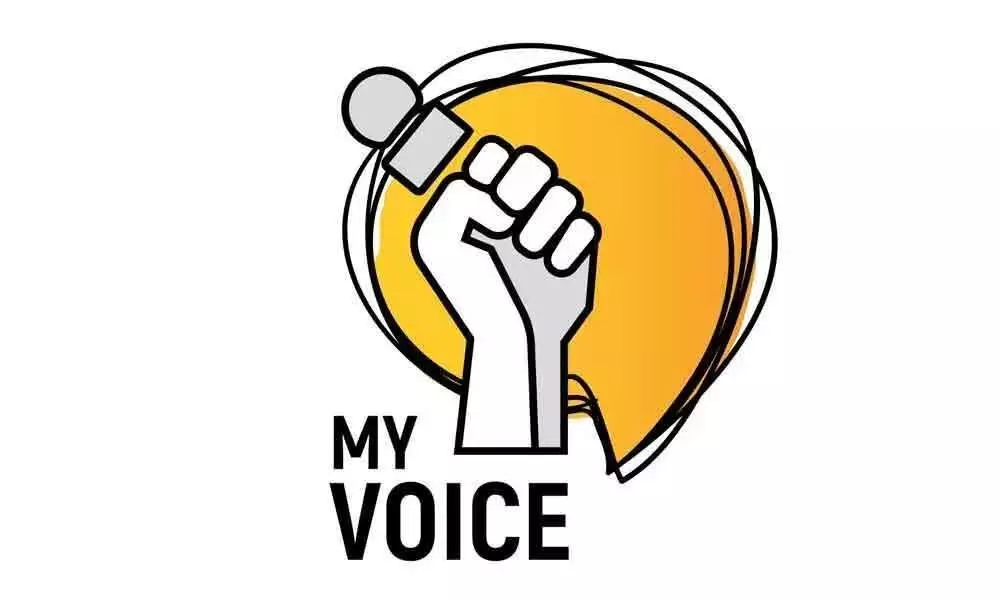MyVoice: Views of our readers - 16 Jan

MyVoice: Views of our readers - 16 Jan
Medical education system needs total overhaul
As an alumnus of KMC and also Osmania Medical College and as a doctor trained in MBBS, MD in MGM Hospital and Osmania General Hospital, and someone who is concerned at the state of affairs in the existing medical education and also the hospital services in government and private sectors, I wish to put forth my views.
It is an undeniable fact that the state of medical education has an impact over the entire medical system - not only over the individual medical student and his entire career, but also the quality of students we generate. The training given to them will impact the individual health of those whom they attend and also societal health.
While the system ponders on "punishing these medical students" for lack of attendance, it is pertinent for all those powers that be to think logically whether there has been any attempt in auditing of the faculty in the present medical system - either in the number of qualified faculty in each department from pre-clinical, para-clinical to the clinical departments both at the undergraduate level and postgraduate level or in the super-specialty level.
There are many questions to be answered. What is the number of faculty in the departments where students are trained? Do all departments have sufficient faculty? Is bedside teaching in clinical postings done regularly as per expected standards?
Are all students trained not only during medical school, but also during their internships and post-graduation? While the committee deliberates on this issue, let them not trivialise by only looking at the point of attendance alone.
Let there be a beginning in streamlining, regulating and auditing the entire state of medical education and also medical systems of care so that all stakeholders in the medical system are accountable for both individual and public health.
Let there be dialogues from everyone to improve the state of medical education, which I again remind, it is not attendance in classrooms alone, but various other factors which matter the most.
(I am not trivialising the issue of attendance, we need to bring the system of education to a level where the faculty take the level of teaching to an inspiring level and also the students should prove themselves to reach the level of compassionate, evidence-based medical care, research, training on par with international standards .
Dr Srinivas Ramaka, Chairman, Srinivasa Heart Foundation, Warangal
War, never a wise move
The Army chief's reference to PoK is being blown out of proportion. The Army operates as per government decisions, but time and type of operations are the sole prerogative of the Army.
Those talking of capturing PoK are ignorant about the challenges of a war in high-altitude zones. The Army needs to be equipped with hi-tech weapons and overwhelming air power. We are 10 squadrons short of our authorised strength. Can we stretch our neck into PoK?
P Arihanth, Nagarjuna Nagar, Secunderabad
It's high time Congress did better
This is with reference to umpteen reports on Congress' opposition to the amended Citizenship Law and other policies of the Modi government. From the Congress point of view, a cynical bid to oppose anything and everything initiated by Narendra Modi-Amit Shah makes immense political sense, just as the top BJP leadership has been wantonly disregarding everything done by Jawaharlal Nehru, Indira Gandhi and Manmohan Singh.
The problem comes in when the Congress tries to convince voters who are not Congress members or vocal sympathisers. The assumption of the electorate, wary of Modi's polices or actions, opposing or voting against, without being influenced, is a void that grand old party is unable to address.
At another level, the Congress is unable to bring non-NDA parties and other groups on board. There is great deal of trust deficit which can be easily measured from the absence of the Trinamool Congress, Aam Aadmi Party and Bahujan Samaj Party (BSP) from a meeting in New Delhi to decide on the joint anti-CAA-NRC strategy.
Perhaps, the combined opposition is unable to grasp how a section of the youth, cutting across region, caste and religion, wants to protect constitutional values.
To be fair to the Congress, a mission-driven zeal to win votes at any cost has not been part of the party's otherwise chequered history. Take the Rajiv era, for instance: when a single-party government had won over 50 per cent votes and brute majority in both Houses of Parliament, the Prime Minister and Congress president lost power in States while making 'earnest efforts' to resolve trouble spots in Assam, Punjab, Jammu and Kashmir and Mizoram.
Perhaps, the Sonia Gandhi-led Congress Working Committee is weighing more heavily towards constitutional propriety rather than being driven by mere headcount.
Congress stakes are low in the Delhi Assembly polls and in the next two rounds of Assembly polls in Bihar and Bengal, it has a rather inconsequential role.
Still, the party would do much better in consulting the Chief Ministers of Congress-ruled States and summoning an All-India Congress Committee (AICC) session to hear voices from rest of the country.
Avani Rao Yalamanchili, Visakhapatnam, AP








